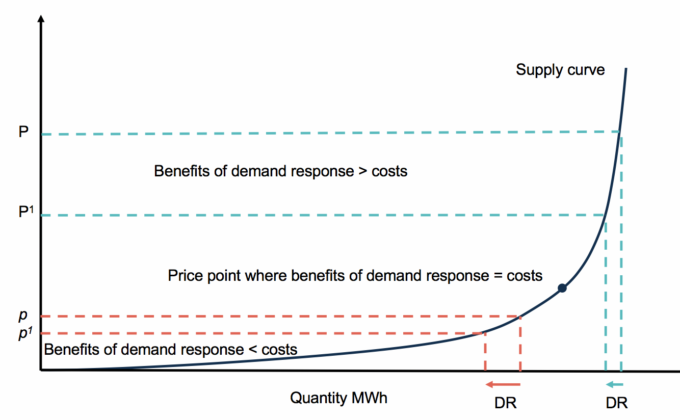
Knowledge Center
We believe that sharing our expertise and collaborations in clean energy policy is how real, effective change happens.
From reports and policy briefs, to webinars and podcasts—RAP advisors have built an extensive collection of resources providing in-depth analysis and practical solutions to today’s energy challenges.
Filter >>
Content Filter:
Auch viele Jahre nach der Liberalisierung wird ein relevanter Teil der Verbraucher noch durch den sogenannten Grundversorger mit Strom und Gas beliefert. Die gesetzlichen Regelungen bestimmen denjenigen Versorger zum Grundversorger, der in einem Netzgebiet die meisten Haushalte versorgt. Er ist… View Summary +
There is an increasing interest in the role so-called market-based instruments (MBIs) can play to deliver energy efficiency across the world. Their rising popularity among policymakers owes, in part, to their characteristics. They tend to be less prescriptive than traditional… View Summary +
In the lively debate around carbon pricing and emission reductions, one crucial aspect is consistently missing. Much of the debate focuses on the carbon price alone. However, carbon revenues are at least as important as carbon prices if Europe’s goal is to accelerate emission reductions… View Summary +
The cost-efficient sharing of resources between Member States could save European consumers 8 billion euros annually by 2030 by reducing the need for investment in new resources to keep the lights on, according to the European Commission’s estimates. However, these… View Summary +
In a RAP webinar presentation, David Farnsworth, Jim Lazar, and Jessica Shipley discussed considerations for ensuring that electrification of space heating benefits consumers, the power grid, and the environment, as well as regulatory and policy tools for implementing the transition… View Summary +
RAP’s definition of beneficial electrification asserts that an electrified end use must satisfy at least one of the following conditions, without adversely affecting the other two: Saves consumers money over the long run; Enables better grid management; and Reduces… View Summary +
The PJM market in the United States and the integrated electricity market in the EU are two examples of competitive wholesale electricity markets. As such, both approach the task of delivering reliable electricity to consumers at a reasonable cost from… View Summary +
我们很高兴有机会就最近发布的中国可再生能源配额政策的“第二次征求意见稿”发表建议。基于对该草案的理解,以及我们在RPS和配额政策方面的长期国际经验,并对中国可再生能源政策设计和电力市场改革的持续参与。我们提出一些初步看法,与前一版草案的意见保持一致,此外还给出了一些新的建议。… View Summary +
In joint comments on the recently released “Second Consultation Draft” of a renewable energy quota policy in China, RAP joins the Energy Foundation China and Center for Resource Solutions to suggest areas for increased emphasis, clarification, and policy improvements. Our views… View Summary +
Explicit demand response provides an opportunity for “aggregated” customers to participate in wholesale electricity markets and profit from their demand flexibility without the risks and costs presented by dynamic tariffs. In doing so, these customers can significantly reduce the price of energy purchased by suppliers by offering a competitive alternative… View Summary +

Five years after passing the Energy Act 2013, the government of Great Britain is conducting a review of the capacity market introduced by this legislation. The evaluation serves to determine whether the capacity market is still necessary and whether it… View Summary +
In a joint fact sheet, the Buildings Performance Institute Europe (BPIE) and the Regulatory Assistance Project (RAP) recommend the introduction of minimum energy performance standards for rental buildings. In general, a household is said to be in energy poverty when its… View Summary +
In einem gemeinsamen Factsheet empfehlen Buildings Performance Institute Europe (BPIE) und Regulatory Assistance Project (RAP) die Einführung von Mindeststandards für Mietgebäude. Allgemein ist ein Haushalt von Energiearmut betroffen, wenn es sich die Mitglieder nicht leisten können, die Wohnung ausreichend zu… View Summary +
Guangdong’s proposed electricity market rules represent an important step forward. Over time, the policies will help Guangdong and the China Southern Grid (CSG) region move toward a more efficient, lower-emissions, lower-cost, and more reliable power system. It will also help lead… View Summary +

